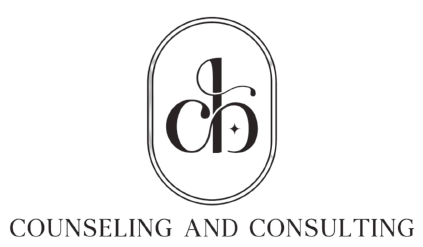Mental Health Blog

How to Begin the Year with Mental Health Goals That Last
Are you ready to make this year your best one yet? Whether you’ve set goals before or you’re just getting started, this is the perfect time to turn your mental well-being into a top priority! Curious to know how you can set achievable, feel-good goals that set the tone for a year of growth, positivity, and happiness? Let’s jump in and discover how to make your mental health shine in the new year!
As the new year begins, many of us make resolutions—some related to our health, career, or personal life. One of the most important resolutions you can make, however, is focusing on your mental health. Prioritizing mental wellness is not only about feeling good in the moment but also about creating a foundation for a fulfilling, balanced life. Setting achievable mental health goals can help you build better coping mechanisms, increase your emotional resilience, and create long-term habits that nurture your well-being. Here’s a more detailed guide on how to set realistic and effective mental health goals for the new year.

1. Start with Self-Reflection: Understand Your Current State
Before you dive into goal-setting, take a step back and reflect on your current mental health. This moment of introspection will give you valuable insights into your emotional landscape and identify the areas that need attention. Consider asking yourself these questions:
How have I been feeling emotionally over the past year? Have there been periods of stress, anxiety, or sadness? What were the triggers?
What mental health challenges am I currently facing? Is it anxiety, stress, low self-esteem, or difficulty in managing relationships?
How have I been managing my emotions? Do I have healthy coping mechanisms, or do I often rely on avoidance or unhealthy habits?
What have been my biggest achievements in mental well-being? Reflect on the positive strides you've made, no matter how small. Celebrate these wins as they can motivate you for the year ahead.
By taking the time to reflect, you create a clearer vision of what’s most important for your mental health. You may realize there are specific emotional patterns or habits you’d like to address. This will give you clarity on the most meaningful goals for the year ahead.
2. Be Specific with Your Goals: Clarity and Focus
One of the key elements of setting achievable goals is making them specific. Rather than vague intentions like “I want to feel better” or “I want to be happier,” narrow down what you really want to focus on. This will help create a sense of direction and purpose.
Here are examples of more specific mental health goals:
Mindfulness and Stress Reduction: “I will practice mindfulness meditation for 10 minutes every morning to reduce stress and increase present-moment awareness.”
Building Emotional Resilience: “I will journal about my emotions every evening to better understand and process my feelings.”
Therapy or Counseling: “I will commit to seeing a therapist once a month to work through unresolved emotional issues.”
Self-Compassion Practices: “I will practice positive self-talk daily and challenge any negative thoughts about myself.”
The more specific and action-oriented your goals are, the easier it will be to integrate them into your daily routine. When you set clear, focused goals, it also becomes easier to track progress and recognize when you’ve achieved them.
3. Break Goals into Manageable Steps
Large goals can feel overwhelming, especially when it comes to mental health, which is often an evolving journey. It’s essential to break down your mental health goals into smaller, more manageable steps. Achieving smaller milestones can keep you motivated and give you a sense of accomplishment along the way.
For example:
Goal: Practice mindfulness for 10 minutes each day.
Small Step 1: Start with 3 minutes of deep breathing each morning for the first week.
Small Step 2: Gradually increase the time to 5 minutes the following week.
Small Step 3: Once you’re comfortable, extend it to 10 minutes by the third week.
Breaking down your goals into bite-sized pieces can also reduce the chance of burnout or frustration. Each step you accomplish reinforces your commitment and increases your sense of agency.
4. Prioritize What Matters Most
It’s easy to get caught up in making long lists of resolutions, but it’s important to recognize that your mental health needs may vary, and you don’t need to fix everything at once. When setting your mental health goals, prioritize what matters most to you right now. What do you need the most to improve your mental well-being?
For example:
If you’ve been struggling with anxiety, you might prioritize learning stress management techniques or practicing deep breathing exercises.
If you find it challenging to assert your boundaries with others, your focus might be on improving communication skills or setting clearer limits.
If you’re dealing with grief or trauma, therapy and support groups may become top priorities.
By focusing on one or two primary areas that need attention, you prevent overwhelm and can devote your energy to making real progress in those specific areas.
5. Practice Self-Compassion: Embrace Your Imperfections
As you work towards your mental health goals, remember that it’s okay to stumble along the way. Self-compassion is key to maintaining motivation and emotional balance during your journey. It’s easy to be hard on yourself if you don’t achieve a goal right away, but mental health improvement takes time and patience.
Here are some ways to incorporate self-compassion into your mental health goals:
Acknowledge setbacks as part of the process. If you miss a day of journaling or meditation, forgive yourself and simply get back on track the next day.
Practice kind self-talk. Instead of criticizing yourself for mistakes, remind yourself that you are doing the best you can and that growth is a gradual process.
Be mindful of perfectionism. Understand that your goal is not to be perfect but to be consistent and resilient.
Treat yourself as you would treat a dear friend: with understanding, kindness, and patience.
6. Set Realistic Expectations: Avoid Overwhelm
While it’s great to aim high, it’s important to be realistic about what you can achieve in a given timeframe. Don’t overburden yourself with too many goals, as this can lead to stress and burnout. Instead, keep your goals grounded in what’s feasible based on your schedule, energy levels, and commitments.
If you’re new to mindfulness, setting a goal to meditate for 30 minutes daily might not be realistic right away. Instead, start with 10-15 minutes and gradually increase it as you feel comfortable.
7. Track Your Progress: Celebrate Small Wins
Tracking progress is essential to staying motivated and seeing how far you’ve come. Whether it’s through a journal, a digital app, or a calendar, keeping a record of your mental health journey allows you to celebrate your achievements, even the small ones. Reflect on your goals every few weeks to assess how well you’re doing and what might need adjustment.
Here are a few tracking methods:
Daily or weekly journaling: Document how you feel before and after practicing your mental health goal. This can help you assess emotional changes over time.
Visual reminders: Place affirmations or motivational quotes in visible areas, like your bedroom or workspace, to keep your focus on your goals.
Mood trackers: Many apps are designed to help you track your moods, giving you an objective way to monitor your emotional well-being.
Remember to celebrate every small achievement. Whether it's sticking to your self-care routine for a week or learning how to manage a stressful situation more effectively, each success deserves recognition.
8. Be Flexible and Adaptable
Mental health is dynamic and ever-changing, and so are your needs. As life shifts, so too should your goals. Be flexible with yourself and adjust your goals as necessary. If something doesn’t feel right, don’t hesitate to modify it to suit your current state. It’s important to be adaptable and patient with your mental health journey.
Conclusion
Setting mental health goals for the new year is an empowering way to prioritize yourself and your well-being. By starting with self-reflection, focusing on achievable steps, and practicing self-compassion, you set yourself up for success. Remember, mental health is a journey, not a destination. The key is consistency, self-care, and kindness toward yourself as you work towards a healthier, more balanced life.
Take a moment to celebrate yourself today. Your mental health matters, and every small step you take brings you closer to the person you want to be. Here's to a year of healing, growth, and self-love!
Disclaimer: The content in our blogs are for informational purposes only and should not be considered a substitute for professional mental health advice, diagnosis, or treatment. Always consult with a qualified mental health professional for personalized guidance and care. In case of a mental health crisis or emergency, please call emergency services immediately.

© 2023 All Rights Reserved
We are offering services online via Telehealth
(614) 957-3321
Hours: Monday-Friday 9:00am-6:00pm

© 2023 All Rights Reserved

